Rounding up outstanding arguments. The two people who were following my theoretical ramble about integrating all the aspects of a comic into a reading of its meaning should note that I concluded my train off thought off the premises. There follows a summary, including the entire post that you probably missed:
here. 5th December:
First let's look at this notion, common to both quotations above, that you can separate everything else from the 'story' ...here. 22 December:
These critics do not go much beyond a simplistic 'what happens' in it. I mean on the level of a statue being naked rather than on the finesse of its chiasmos. ...Hooded Utilitarian. 28 December (on a long thread my comment addressed a habit of criticizing a comic's story and art as though they are things that can always be separated. Persepolis and Habibi had been so discussed and both found wanting in one or both aspects):
An essential demand of the newer kind of comics under discussion, in which a unified whole is presumed, is that we find a more apt way of talking about them. Satrapi’s Persepolis, when it opens, is the first person narrative of a ten year old girl. The drawing is perfectly right for the story; it expresses the world view of a ten year old girl living anywhere. Characters are simplified in a way that is charmingly naive and perspective is nearly non-existent. Whether Satrapi is capable of a different kind of drawing is not relevant to a discussion of the book. The artist is not a musician being hired by a symphony orchestra that expects her to be able to play the whole classical repertoire. She is giving us a record of her personal experience. She has a natural grasp of what is important in telling a story, which unfolds with simplicity. By the end of the first book we are surprised by how much information we have taken in, as we weren’t aware of taking it in. We thought we were listening to a child talking.
The authentic voice of the original can be appreciated by comparing it with the more professionally knowing treatment of the material in the animated movie, as in this excerpt:. Some parts of are
excruciatingly embarrassing:
The professionals who worked on it will go onto their next gig and we may hope they will be teamed with material more suited to their outlook.
As to Habibi, Matthias shows that there is nothing in Thompson’s art that is not in the overall meaning of the book. To praise the art separately is the reflex of the critic who has unconsciously recognized the ‘generosity of intent’ that is all over the work and doesn’t want to end on a rude rebuke. That intent is as much the CONtent as anything in the book that appears to be about the Arabian world. Looking at it again two months after I first opened the work, what I see is a cartoon romantic fantasy. I’m incredulous that it has inspired so much argument, or that in a medium that produces a mountain of crap over and over every year anybody could think this is among the “worst” that comics has to offer in 2011.
As always, the criticism against Thompson is that he didn’t make the book that thinking folk wanted him to make. I recall that the title of the TCj review of Blankets in 2003 (2004?-Tcj is never timely) consisted of those words more or less (‘Why Blankets isn’t the book… ?) Here it’s that Habibi is not a complex poem about modern life as reflected in the travails of the middle east, and also he didn’t draw it more in the manner of Blutch.
I remain however dubious about the remark that there is an implicit assertion that the book is more than broad melodrama. I thought that Nadim’s observation that there was more of Disney’s Nights than Burton’s was apt. And the ecological message isn’t more profound than ‘we need to look after the world because it’s where we live’.
While the lavish attention to tangential information raised hope of profundity, some critics have had trouble with him breaking up the linearity of the story unnecessarily. But I see that as just a Tarantino thing. A normal person nowadays takes in so many pre-digested stories (still on holiday, I think I inadvertently watched four movies yesterday) that rearranging the normal running order of events becomes a way of pumping some fizz into the flat drink. There can’t be anybody who doesn’t know how stories go. Sometimes I come into a movie ten minutes late just to make it more interesting. I tried it with Inception yesterday and it still didn’t work. We are a society that is weary with it all. We get more complete stories daily than ever before in history. We shuffle the pack to stave off boredom. Lists. the Months of the calendar of pregnancy, the names of the rooms in the palace, the planets, the nights of Sheherezade, the walk-ons of the Cheshire cat, the ninjas of Frank Miller, the Goddess Bahuchara Mata. Witty juxtapostions: the prophet at the farthest limit of human understanding plays out over the slave putting a spanner in the works in the Rube-Goldbergian plumbing inside the heart of Wanatolia. it’s a play-bauble being turned around and viewed from every possible angle. It’s not the ink line that is the virtuoso show, but the cartoon invention, the prodigious flow of ideas. The ink line serves the demands of clarity, of the ‘control’ that has been discussed above, and it speeds in comparison to Blutch’s because that also is demanded of it. It is liquid, and the ideas run as though out of a tap that has been left on, spilling out the supply of water necessary to quench the thirst of a careening dash through this Arabian fantasy.
And as with Satrapi, that is why Thompson’s drawing is inseparable form everything else in the book. There is certainly much that I find odd in it, including a coy Middle American sense of humour, as in the farting little man in the palace. Isn’t farting viewed differently in Arabia? And the convoluted treatment of sex in Thompson’s work will certainly one day attract a separate study.
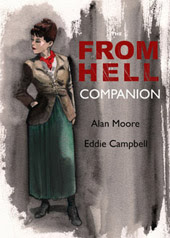
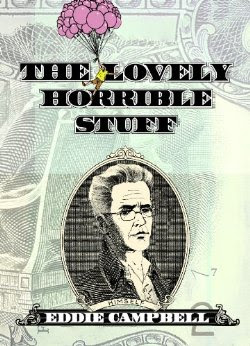

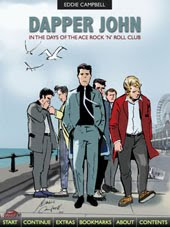
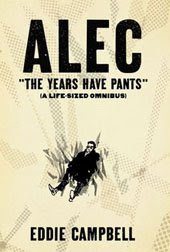
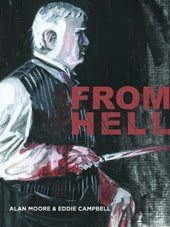
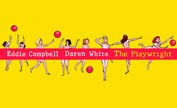
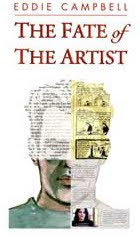
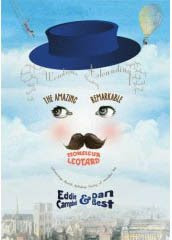
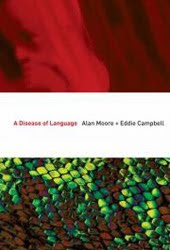
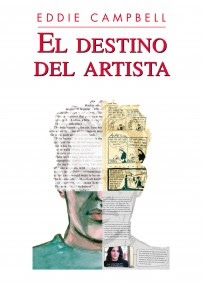
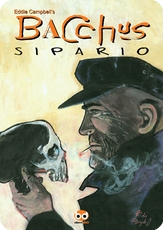
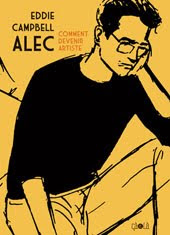

7 Comments:
It's no surprise to me that in these off-the-cuff comments you've written some of the most perceptive stuff I've read yet about Habibi.
This comment has been removed by the author.
I still haven't read Habibi, but for those who call Thompson a racist, I'll note that Nnedi Okorafor, this year's winner of the World Fantasy Award, calls Habibi the book of the year:
http://nnedi.blogspot.com/2011/12/nnedis-book-of-year-habibi-by-craig.html
She's hardly oblivious to racial issues. She has an interesting post about being a black woman who won an award that is a bust of Howard Lovecraft, who wrote a poem titled "On the Creation of Niggers":
http://nnedi.blogspot.com/2011/12/lovecrafts-racism-world-fantasy-award.html
Thanks, Will. And a happy new year to you.
Yes, I just don't get it any more. A recent complainant wrote here "We are complaining because these portrayals are deeply hurtful to us personally." I'm starting to think it can only be hurtful on the level of where I might take offense at Mike Myers' Fat Bastard as a depiction of a Scotsman (which I think is hilarious lest there be any doubt).
I borrowed Habibi to read what the fuss was, I've never read Blankets; the only other work I know of Thompson is from a Top Shelf Anthology, about Americans (?) slumming in Europe, an artisit drawing, either a Polish or Czech woman at a train station.
I read Habibi quickly, and it was an entertaining yarn. I disliked the 'jump cuts' transitions, but especially the one leading up to climax, the aftermath of the answer to the riddle.
The reason I dislike it is that comes across more as a story telling artiface than it is a true insight: that the alchemical metaphore is an analogy which presents the solution. I was unconvinced that this was a true realization, in the way of that say, Alec Guiness in Bridge on the river Kwai, towards the end, realizes he was collaborating.
That kind of discovery, in its way a scientific one an insight, the scales falling from one's eyes, the excitement of an idea; and the way it was depicted in Habibi, completely disrupted the illusion. I could no longer suspend my disbelief, if you will. After that the graphic appeals to sentiment were a little grating.
I'm baffled by a story that regards story itself and metaphore, transformations, symbolism and similar themes as much as its subject as the protagonists, to fail in what I consider to have been a crucial scene.
That's all, pretty minor stuff in comparison to the what's been going on. Also, why 'Wanatolia'? Why not just Anatolia and be damned?
"I'm starting to think it can only be hurtful on the level of where I might take offense at Mike Myers' Fat Bastard as a depiction of a Scotsman (which I think is hilarious lest there be any doubt)."
With respect, Mr Campbell, but this analogy will only work if your countrymen had centuries-worth of history of being demonised and ostracised and exoticised (alongside various campaigns of all-out war declared towards them) just because mainly they worship a god with a different name from supposedly everyone else's (and I know Scotland has its own bloody history of being stepped on, but not nearly as widespread or as lasting as the Muslim World's). This particular line of criticism for HABIBI sees the book as a continuation of that demonism/ostracism/exoticism, something that Thompson himself (limitedly) admits as part of his intention. I can't blame some of the critics for taking it personally.
I appreciate all the words you've written on HABIBI, and I agree whole-hog on the notion that (good) art is beyond morals and moralising, only I also recognise that the interpretation of art can sometimes be not as secular as the object itself.
You're always a great read, Mr Campbell. Thank you for all this.
yeah, but with respect, duh. We passed that turnoff miles back. The above outburst was an appeal to the utmost reaches of absurdity. maybe I'm not using enough smileys :) :) :)
We've gone past the part about Orientalism hindering Palestine's bid for full United Nations membership. All the sensible arguments are done. Now we're down to 'we don't like the way you depict us.' Which image in Habibi are we talking about exactly? the last commenter just said the whole book was offensive, without leaving me with any understanding of why it is so. We don't like you depicting us. period. thus, I no longer get it , and furthermore I no longer have any sympathy with the offended.
I'm done
Post a Comment
Subscribe to Post Comments [Atom]
<< Home